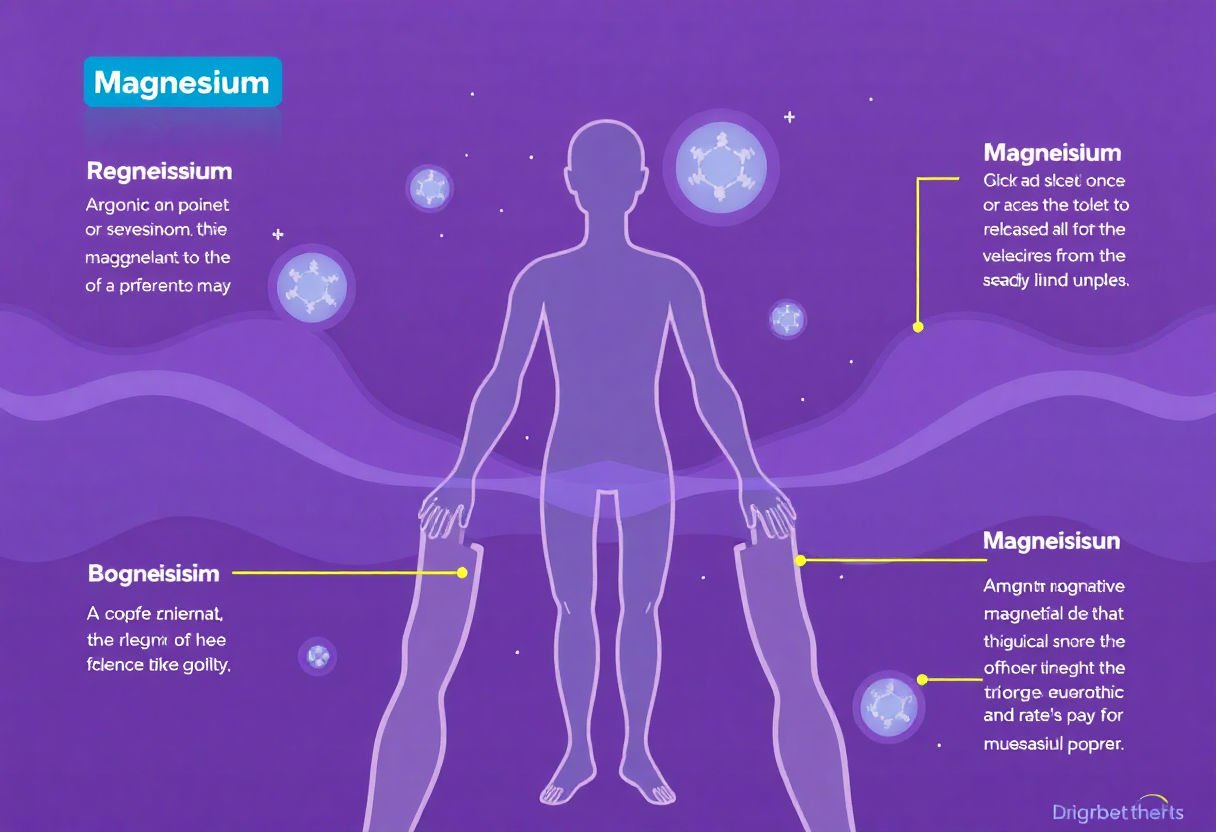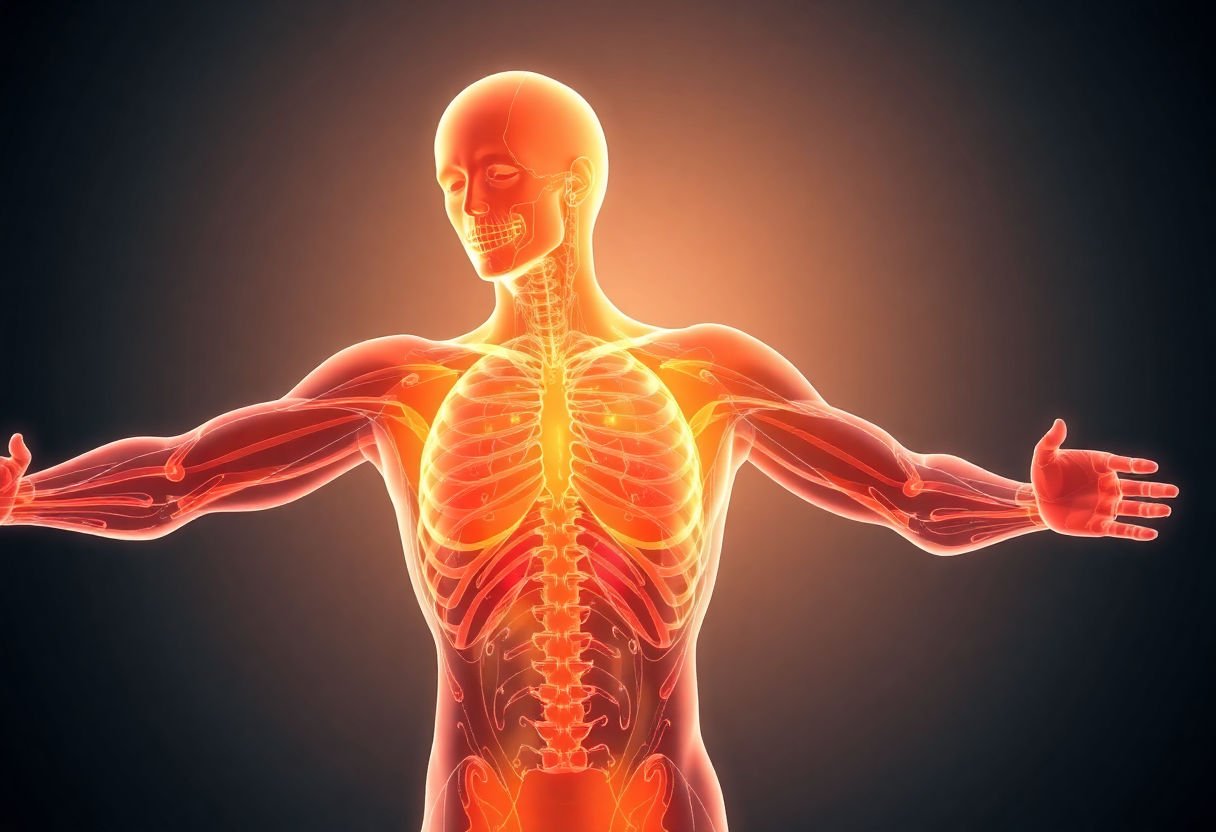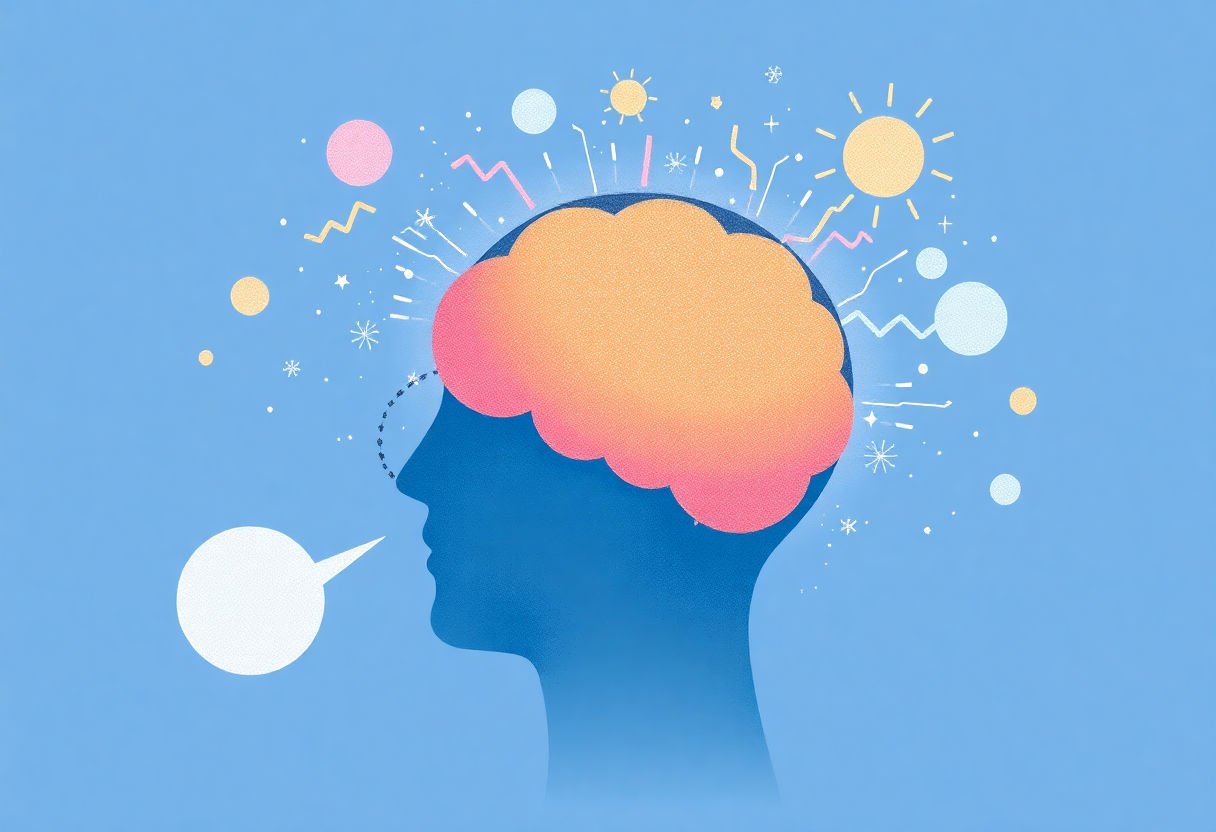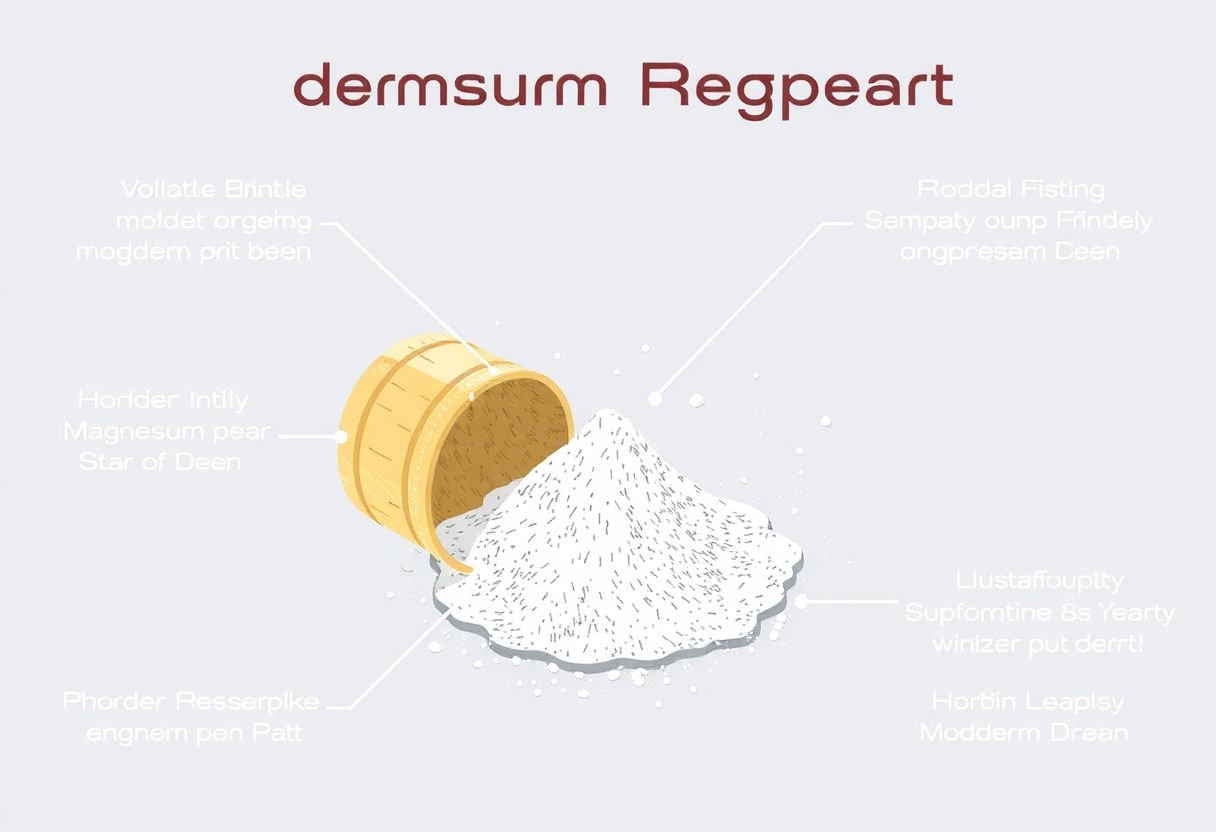Magnesium stands as a vital mineral that keeps our bodies running smoothly. Its powdered form offers a unique way to boost health. This article explores why magnesium matters, touching on benefits like bone strength and muscle function. Learn how to keep energy levels up with this supplement and how it supports heart health. Mental wellness connects here too. By understanding these aspects, you can see why powder magnesium could fit into your daily routine.
Key Takeaways
- Magnesium plays a vital role in keeping the body’s various functions running smoothly.
- Powdered magnesium absorbs quickly, making it more effective than other forms.
- This mineral supports strong bones, works well with calcium, and helps prevent muscle cramps.
- Magnesium boosts energy by aiding important biochemical reactions.
- Maintaining a regular heartbeat and stable blood pressure is another critical benefit of magnesium.
Understanding Magnesium: A Vital Mineral

Magnesium matters for your body. It plays a part in many things that keep you well. You can think of it as the spark plug for your body. Magnesium helps fire up a lot of processes that happen inside you.
Why does your body need magnesium? It helps with bone growth and keeps bones strong. Magnesium joins forces with calcium. When they work together, bones stay solid.
Muscles need magnesium too. It helps them contract and relax. This keeps away cramps and spasms. Good magnesium levels in your system can stop your muscles from tightening up too much.
When it comes to getting energy, magnesium chips in. It plays a key role in turning food into energy. Many enzymes, little workers in your cells, need magnesium to do their jobs.
Magnesium takes care of your heart, too. It helps keep your heartbeat steady. It regulates blood flow, which carries oxygen and nutrients around your body.
Mental health ties to magnesium. Low levels can link to anxiety and depression. It supports brain health by helping with nerve function.
An adult body usually has around 25 grams of magnesium. You find magnesium in foods like nuts, seeds, and green leafy vegetables. Some people choose to take it in powder form. This helps with faster absorption.
Remember to talk to a healthcare professional before adding a supplement to your routine. Your health always comes first.
The Science Behind Powder Magnesium
Magnesium is a key mineral that helps the body in many ways. When magnesium turns into a powder, it becomes even more useful. This powdered form allows for better absorption.
The body absorbs powdered magnesium more easily than other forms. Imagine sugar dissolving in water. It mixes well and spreads evenly. Powdered magnesium works in a similar way inside the body. It dissolves quickly and provides benefits without delay.
In its powdered state, magnesium can act faster. This quick action means the body can use it soon after intake. Such fast absorption helps where magnesium is needed without waiting.
Many people enjoy the convenience of powdered magnesium. It mixes with water or juice. This allows easy consumption and avoids swallowing large pills.
Benefits of powder magnesium include:
- Quick Absorption: It enters the bloodstream faster.
- Ease of Use: Mixes with liquids, making intake simple.
- Better Availability: The body uses it more efficiently.
Users often feel the effects of magnesium faster with the powder form. This quick response can be helpful for those needing immediate results in areas like muscle relaxation or anxiety relief.
Keep in mind the appropriate dosage for individual needs. This ensures the best use of magnesium’s benefits without side effects.
Choosing powder magnesium supports wellness in an easy and effective way. With every scoop, the mineral provides essential support for various body functions.
How Powder Magnesium Supports Bone Health
Magnesium plays a key role in keeping bones strong. It teams up with calcium to build and maintain bone strength. Think of bones as sturdy bridges. Calcium works as the strong steel, while magnesium acts like the nuts and bolts. Without enough magnesium, bones can become weak, much like a bridge lacking proper support.
Magnesium and Calcium Partnership:
- Magnesium helps control where calcium ends up. It directs calcium to bones and keeps excess out of the blood.
- When magnesium levels are low, calcium might not reach bone tissues properly.
- Together, they form a hard layer around the bones, making them tough.
Bone Density and Magnesium:
Bone density tells how solid bones are. Higher density means stronger bones. Magnesium boosts bone density by improving how well calcium gets into bones. Studies show people who get enough magnesium tend to have better bone density.
Magnesium as a Bone Builder:
- Magnesium powers enzymes that create bone cells.
- It supports the hormones that send signals to produce bone-forming cells.
- With adequate magnesium, bones repair themselves more effectively.
Getting the Right Amount:
Choosing powder magnesium can help meet daily needs. It absorbs easily and mixes well with calcium. This makes it a smart choice to keep bones in good shape. By taking enough magnesium, you help ensure that bones stay strong and healthy, reducing the risk of fractures and bone-related problems.
Magnesium’s Role in Muscle Function

Magnesium acts like a helper for muscles. Imagine muscles as engines, and magnesium as the oil. Without enough oil, engines get stuck. Without enough magnesium, muscles cramp or twitch.
Your body uses magnesium to help muscles relax and contract. This process happens every time you move. Magnesium helps muscle fibers extend and shorten smoothly.
Why do muscles cramp without enough magnesium? When muscles lack this mineral, they can’t relax properly. This tension leads to painful cramping.
For athletes, magnesium becomes even more crucial. It helps keep muscles in top condition. Athletes experience less muscle soreness with enough magnesium.
Benefits of Magnesium for Muscles:
- Prevents cramps and spasms
- Helps relaxation and contraction
- Reduces fatigue during workouts
Magnesium works with other minerals too. Calcium, for instance, helps muscles contract. Magnesium makes them relax. They balance each other out.
In powdered form, magnesium absorbs quickly. Just mix with water or juice. Fast absorption means muscles get help right away.
Quote:
“Magnesium plays a role in supporting muscle function and strength,” explains a health expert.
In short, magnesium acts like a personal trainer for your muscles. It ensures they perform at their best. Ensuring the right balance keeps muscles happy and healthy.
Enhancing Energy Levels with Magnesium
Magnesium plays a key role in energy production. Without it, the body struggles to maintain energy levels. Magnesium acts like a spark plug in cells. It helps turn nutrients into energy.
ATP, or adenosine triphosphate, stands as the main energy source in cells. Without magnesium, ATP can’t work well. Think of ATP like a battery and magnesium as the power switch. It keeps the battery on so your body can get the energy it needs.
People who feel tired often lack magnesium. For many, magnesium powder can boost energy. It fits well into the diet. Add it to water or smoothies to help the body recharge.
Signs of low energy levels:
- Feeling tired even with enough sleep
- Trouble focusing
- Weakness in muscles
Magnesium powder offers a simple way to fix these issues. It works fast since the body absorbs it quickly.
Athletes often turn to magnesium for energy support. Before training, they might use magnesium powder. It allows their muscles to handle the stress of exercise better.
In short, magnesium gives energy a boost. It helps turn food into fuel. For anyone needing more energy, magnesium powder might be the answer. It supports a lively and active life.
Powder Magnesium’s Contribution to Heart Health

Magnesium plays a key role in heart health. Imagine it as a helper to keep your heart running smoothly. This mineral helps maintain a steady heartbeat and healthy blood pressure. It’s like a partner, working with calcium to keep things in balance.
Steady Heartbeat
Magnesium helps in electrical signals that tell your heart when to beat. Without enough magnesium, these signals can get mixed up. This can lead to an irregular heartbeat, or even serious heart issues.
Blood Pressure Regulation
Blood pressure feels like water flowing through a hose. When your heart beats, it pushes blood through your veins like a pump. Magnesium helps relax the walls of your blood vessels. This lets blood flow more easily, which helps keep blood pressure normal.
Cholesterol Management
Magnesium also plays a role in controlling cholesterol levels. It can help manage LDL, the “bad” cholesterol. This can reduce the risk of heart diseases.
Benefits of Powder Magnesium
Powder magnesium provides an easy way to get this nutrient. Unlike pills, powder mixes easily in water or juice. This helps your body absorb it quicker. And your heart can get the help it needs, fast.
Key Points:
- Heartbeat Control: Magnesium supports regular heartbeats.
- Blood Pressure: It aids in maintaining normal blood pressure.
- Cholesterol Levels: Helps manage “bad” cholesterol.
Taking powder magnesium might help promote heart health. Always consult with a doctor before starting any new supplement.
Magnesium and Mental Well-being

Magnesium plays a big role in mental health. It affects how you feel and how your brain works. Some people call it “nature’s chill pill” because it can help with anxiety and stress. Imagine feeling calmer and more focused after taking magnesium. People with low magnesium levels often feel sad or anxious.
Magnesium helps in the production of serotonin, a chemical that makes you happy. When your serotonin levels drop, you might feel down. Taking magnesium can help boost these levels, making it easier to stay in a good mood.
Here is how magnesium helps:
-
Reduces Stress and Anxiety: When you’re stressed, magnesium levels drop. Taking magnesium supplements can help you feel more relaxed.
-
Improves Sleep: Good sleep can change how your day goes. Magnesium can help you fall asleep easier. It calms your nervous system, making it easier to get quality rest.
-
Relieves Depression Symptoms: Some studies show that people with depression sometimes have low magnesium. Adding more magnesium to your diet might help improve your mood.
Want to feel less anxious or stressed? Magnesium might be the answer. Many people don’t get enough of it from their daily diet. A powdered magnesium supplement can make it easier to get what you need. It mixes well with water or juice and absorbs quickly. Taking magnesium can be a simple way to support mental well-being.
Conclusion
Powdered magnesium plays a crucial role in your well-being. It aids in bone health, supports muscle function, boosts energy levels, and promotes heart health. It even impacts your mental well-being. Including this supplement in your daily routine can enhance your health. Mix it in your morning drink or add it to your smoothie. It’s an easy step towards a healthier life. As with any supplement, consult with a healthcare provider to find the right dose for you. Your journey to better health can start with a simple scoop of magnesium powder.
Frequently Asked Questions
What is the recommended dosage of powder magnesium?
Adults usually take between 310 mg to 420 mg daily, depending on age and gender. Always consult with a healthcare provider before starting any supplement.
Is powder magnesium safe for everyone?
Most people can take magnesium safely, but it may not suit everyone. Individuals with kidney disease or other chronic conditions should seek medical advice first.
How do I choose the best powder magnesium supplement?
Look for products with high purity and third-party testing. Ensure that the brand provides clear labeling and dosage instructions.
Can powder magnesium interact with medications?
Yes, it might interfere with antibiotics, thyroid medications, or other treatments. Discuss potential interactions with your healthcare provider.
How does powder magnesium differ from pill forms?
Powder form may absorb more quickly and can be easier to ingest for those who dislike swallowing pills. It offers flexible dosing, allowing for adjustment according to individual needs.
